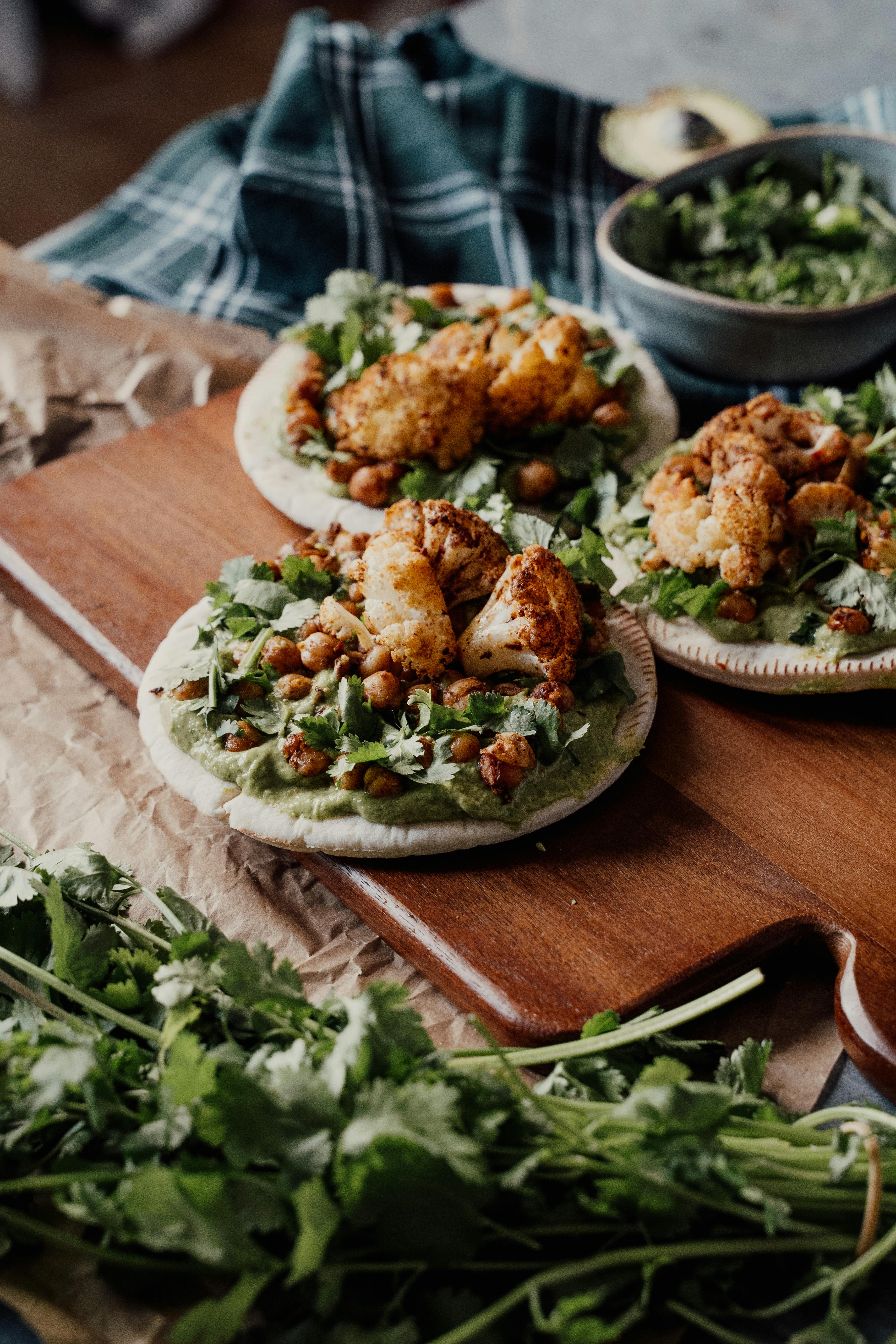As people become more health-conscious and environmentally aware, plant-based eating is gaining popularity.
Adopting more plant-based meals into your diet offers numerous benefits, such as improving overall health, reducing the risk of chronic diseases, and contributing to a sustainable food system.

If you are looking to make the transition to a more plant-based diet but don’t know where to start, this article will provide you with practical tips and ideas to help incorporate more plant-based meals into your routine.
For more information and meal ideas, check out this helpful site.
1. Understand the Benefits of a Plant-Based Diet
Health Benefits of Plant-Based Eating
Plant-based diets are rich in fruits, vegetables, whole grains, nuts, and legumes, providing essential vitamins, minerals, and fibre. These foods can help:
- Boost overall health: Plant-based meals are typically low in saturated fats and rich in antioxidants, which support heart health and boost immunity.
- Aid weight management: Because plant-based foods are often lower in calories and higher in fibre, they can help you feel full longer and manage your weight effectively.
- Reduce the risk of chronic diseases: A plant-based diet has been linked to lower risks of chronic conditions like heart disease, diabetes, and certain cancers.
Environmental Benefits
In addition to the health advantages, eating more plant-based meals can significantly reduce your environmental impact.
The production of plant-based foods requires fewer natural resources (like water and land) and produces less pollution compared to animal agriculture. By incorporating more plant-based meals, you can:
- Reduce greenhouse gas emissions: Plant-based foods generate fewer emissions compared to meat production, helping combat climate change.
- Conserve water and land: Growing plants uses less water and land than raising animals for food, contributing to resource conservation.
The environmental impact of your food choices is something worth considering, especially in the context of global sustainability efforts.
2. Start Slow and Set Realistic Goals
Begin with Meatless Days
If you’re new to plant-based eating, it can feel overwhelming to make the switch overnight. Instead, start with small changes, such as implementing “meatless days” into your week.
A great starting point is Meatless Monday, where you commit to having plant-based meals for one day each week.
Meatless Day Meal Ideas:
- Breakfast: Smoothie bowls made with almond milk, fruits, and granola.
- Lunch: Chickpea salad with mixed greens, cucumber, and tahini dressing.
- Dinner: Stir-fried vegetables with tofu and brown rice.
Gradually Replace Animal Products
As you grow more comfortable with plant-based meals, start gradually replacing animal-based ingredients in your regular meals. This could mean swapping meat for plant-based proteins like tofu, tempeh, or legumes, or replacing dairy with plant-based alternatives like almond milk or vegan cheese.
Simple Substitutions to Try:
- Plant-based milks (soy, oat, almond) instead of cow’s milk.
- Lentils or beans instead of ground beef in tacos or spaghetti.
- Tofu or tempeh as a substitute for chicken in stir-fries or sandwiches.
3. Focus on Plant-Based Protein Sources
Include a Variety of Protein-Rich Plant Foods
One of the main concerns when transitioning to a plant-based diet is ensuring that you get enough protein. Fortunately, there are many plant-based sources of protein that are just as effective as animal proteins. These include:
- Legumes: Beans, lentils, chickpeas, and peas are all great sources of protein and fibre.
- Tofu and Tempeh: Made from soybeans, these foods are high in protein and can be used in a variety of dishes.
- Nuts and Seeds: Almonds, peanuts, chia seeds, and hemp seeds offer healthy fats and protein.
- Whole Grains: Foods like quinoa, farro, and barley contain both protein and fibre.
Make Protein a Priority in Every Meal
To make sure you’re getting enough protein, aim to include a protein source in every meal. For example, start your day with a protein-packed smoothie using pea protein powder, enjoy a lentil-based salad for lunch, and finish the day with a hearty chickpea stew or tofu stir-fry.
Protein-Packed Meal Ideas:
- Breakfast: Chia pudding with almond milk, topped with pumpkin seeds and berries.
- Lunch: Quinoa salad with roasted vegetables, chickpeas, and a lemon-tahini dressing.
- Dinner: Stir-fried tempeh with vegetables and brown rice.
Incorporating these protein sources into each meal will help meet your nutritional needs.
4. Keep Meals Simple and Convenient
Quick and Easy Plant-Based Recipes
Busy days don’t have to prevent you from enjoying healthy plant-based meals. Many quick and easy recipes can be prepared in under 30 minutes, making them perfect for weekdays when you’re short on time.
Easy Plant-Based Recipe Ideas:
- Lentil Soup: A hearty and filling soup made with lentils, tomatoes, carrots, and spices. It’s full of protein and fibre and can be made in a single pot.
- Veggie Stir-Fry: Quickly sauté your favourite vegetables with tofu or tempeh in soy sauce or teriyaki sauce for a fast and flavourful meal.
- Hummus and Veggies: A simple snack or lunch option. Serve hummus with raw veggies like carrots, cucumber, and bell peppers for a healthy, satisfying option.
Batch Cooking for Busy Weeks
One of the best ways to ensure you stick to your plant-based goals is by batch cooking. Preparing large quantities of plant-based meals in advance can save you time and make it easier to stick to your meal plan throughout the week. Simply cook a big batch of a dish, like a vegetable curry or lentil stew, and store it in individual containers for later.
Batch Cooking Meal Ideas:
- Chili: Make a large pot of plant-based chili with beans, tomatoes, and spices. This meal keeps well in the fridge and is easy to reheat.
- Grain Bowls: Cook a big batch of quinoa or brown rice, and top with roasted vegetables, beans, and a simple dressing.
- Vegan Burritos: Fill whole-grain tortillas with rice, beans, vegetables, and salsa. Wrap them up and store in the fridge for a quick grab-and-go meal.
5. Make Plant-Based Eating Enjoyable for the Whole Family
Involve Your Family in the Process
If you’re transitioning to a plant-based diet for your whole family, getting everyone involved in meal planning and preparation can help make the shift easier.
Let your kids or partner pick out plant-based meals they’d like to try, and involve them in cooking. This can help create excitement around new foods and make the transition more enjoyable for everyone.
Fun Family Meal Ideas:
- Taco Night: Use lentils, beans, or crumbled tempeh as a filling for tacos. Add toppings like guacamole, salsa, and shredded lettuce for a fun, build-your-own meal.
- Pizza Night: Use a whole-wheat base and top with tomato sauce, veggies, and plant-based cheese or nutritional yeast for a healthier pizza option.
- Smoothie Bowls: Create custom smoothie bowls with a variety of fruits, seeds, and nut butter. This is a fun way to add plant-based foods to your family’s routine.
Keep the Flavours Bold
Plant-based meals don’t have to be bland. Experiment with different herbs, spices, and flavourings to make plant-based meals more exciting.
Use cumin, turmeric, garlic, and chili to add depth to your dishes. Fresh herbs like cilantro, basil, and parsley can add brightness and flavour, while sauces like tahini or soy sauce can add richness.
6. Stay Motivated and Be Patient
Celebrate Small Wins
Transitioning to a plant-based diet is a process, and it’s important to celebrate your progress along the way.
Whether you’re trying a new plant-based recipe, sticking to a meatless day, or finding new favourite ingredients, acknowledging your achievements can help keep you motivated.
Be Kind to Yourself
Changing your eating habits takes time. There may be days when you slip up or don’t feel like cooking. Don’t be too hard on yourself. The key is to stay consistent and remember that every small change counts towards your goal of incorporating more plant-based meals into your diet.
Conclusion
Incorporating more plant-based meals into your diet can lead to a host of health and environmental benefits.
By starting slow, making small adjustments, and focusing on whole, nutrient-dense foods, you can transition to a plant-based diet that works for your lifestyle.
Whether you’re replacing a few meals each week or going fully plant-based, the important thing is to stay committed and enjoy the process.
Frequently Asked Questions
Do I need to be fully plant-based to see health benefits?
No, even incorporating a few plant-based meals into your weekly routine can provide health benefits, such as improved heart health and better weight management.
How can I ensure I’m getting enough protein on a plant-based diet?
Include a variety of plant-based protein sources like beans, lentils, tofu, tempeh, and whole grains. These provide adequate protein and other essential nutrients.
Can plant-based meals be affordable?
Yes, plant-based meals can be very affordable, especially when you focus on staple ingredients like beans, lentils, rice, and seasonal vegetables. Buying in bulk can also help save money.
